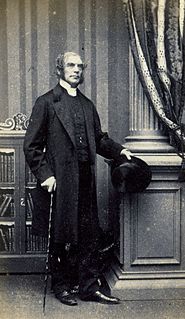A Quote by John Dryden
Good Heaven, whose darling attribute we find is boundless grace, and mercy to mankind, abhors the cruel.
Related Quotes
The quality of mercy is not strain'd, It droppeth as the gentle rain from heaven Upon the place beneath: it is twice blest; It blesseth him that gives and him that takes: 'Tis mightiest in the mightiest: it becomes The throned monarch better than his crown; His sceptre shows the force of temporal power, The attribute to awe and majesty, Wherein doth sit the dread and fear of kings; But mercy is above this sceptred sway; It is enthroned in the hearts of kings, It is an attribute to God himself; And earthly power doth then show likest God's When mercy seasons justice.
Grace has to be the loveliest word in the English language. It embodies almost every attractive quality we hope to find in others. Grace is a gift of the humble to the humiliated. Grace acknowledges the ugliness of sin by choosing to see beyond it. Grace accepts a person as someone worthy of kindness despite whatever grime or hard-shell casing keeps him or her separated from the rest of the world. Grace is a gift of tender mercy when it makes the least sense.
People often wonder just what trainers give the sheepdog in exchange for its boundless willingness. Food treats and praise sit on the trainer's shelf, untouched, unused. The sheepdog is shown its possibilities, he learns what life is like for a good dog and is invited to walk in a rational world whose farthest boundaries are defined by grace.
Christ's boundless grace confronts our deep necessities. Christ's promised presence confronts our sad and gloomy loneliness. Jesus thus filled with grace so overflowing, with love so tender, with sympathy so exquisite, with power so illimitable, with resources so boundless, with a nature so changeless, stands before us and says to each trembling heart, 'Fear not!'






































